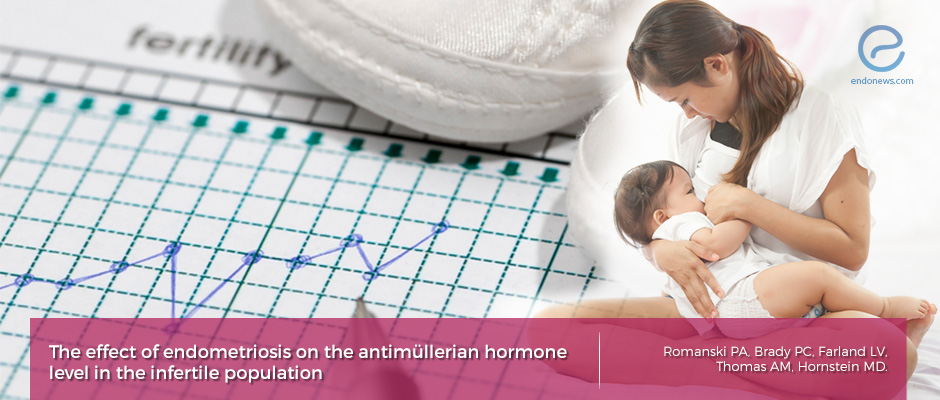Does Endometriosis Reduce Ovarian Reserve?
May 28, 2019
The answer seems to be yes.
Key Points
Highlights:
- Markers of ovarian reserve are worse in infertile women with endometriosis compared to women with male factor infertility regardless of whether or not they have had ovarian surgery.
Importance:
- Endometriosis may affect ovarian reserve through mechanisms other than the ovarian injury caused by surgery.
What's done here:
- Researchers analyzed levels of anti-Müllerian hormone (AMH), and follicle stimulating hormone (FSH) in the blood of women with endometriosis who have had ovarian surgery, those with the disease who haven’t had the surgery, and women with male factor infertility.
Key results:
- Women with endometriosis (both those who have had ovarian surgery and those who haven’t) had lower levels of AMH in their blood – a sign of diminished ovarian reserve – compared to women with male factor infertility.
- More women with endometriosis (regardless of whether or not they have had ovarian surgery) had AMH levels of less than 1 ng/mL.
- The mean levels of FSH were higher (another indicator of diminished ovarian reserve) in women with endometriosis who have or have not had ovarian surgery compared to those with male factor infertility.
Limitations:
- Two different AMH assays were used during the study period, which could have had an effect on the results.
- The study only included women with endometriosis who were infertile and it is not known whether women with endometriosis who are fertile also have diminished ovarian reserve.
- There may be differences in AMH levels between women with endometriosis of different stages but because the number of women in each stage of the disease was low, it is not possible to detect such differences statistically.
Lay Summary
Markers of ovarian reserve are worse in infertile women with endometriosis compared to women who cannot conceive due to male factor infertility regardless of whether or not they have had ovarian surgery. This finding is important because it suggests that endometriosis may alter ovarian reserve independently of ovarian injury caused by surgery.
For the study that was published in the Journal of Assisted Reproduction and Genetics, researchers at Brigham and Women's Hospital and The University of Arizona analyzed 671 women who were seeking IVF treatment between April 2015 and May 2017 for their infertility.
The researchers separated the women into three groups. In the first group, they put women who had endometriosis and have had ovarian surgery, in the second they put women with endometriosis who did not have ovarian surgery, and in the third group, they put women without endometriosis who could not conceive due to male factor infertility.
They then measured the levels of anti-Müllerian hormone (AMH) and follicle stimulating hormone (FSH) in the blood of the women.
They found that the mean levels of AMH were lower in infertile women with endometriosis whether or not they have had ovarian surgery, compared to women who could not conceive due to male factor infertility. More patients who had endometriosis had levels of AMH of less than 1 ng/mL compared to patients with male factor infertility.
The study also found that the levels of FSH were significantly higher in the blood of the infertile women with endometriosis compared to women with male factor infertility.
AMH is a hormone secreted by developing egg cells. Levels of AMH are a good indicator of a woman’s ovarian reserve with low levels correlating with low ovarian reserve. (AMH levels of fertile women are between 1 and 4 ng/mL).
Similarly, FSH is another marker of ovarian reserve. Levels of FSH on day 3 of the menstrual cycle are normally low in the fertile women. Therefore, higher than normal levels of FSH on day 3 are indicative of diminished ovarian reserve.
Research Source: https://www.ncbi.nlm.nih.gov/pubmed/31020439
infertility ovarian reserve anti-Müllerian hormone AMH ovarian surgery

